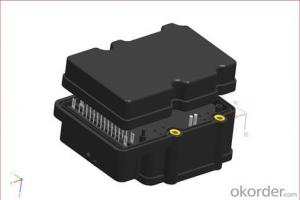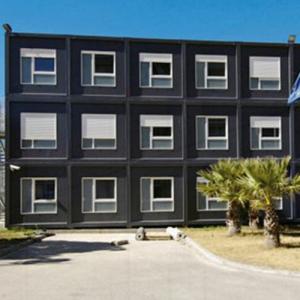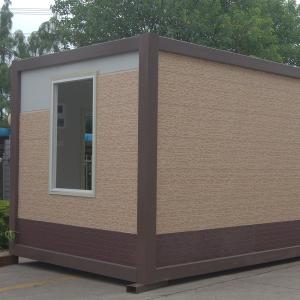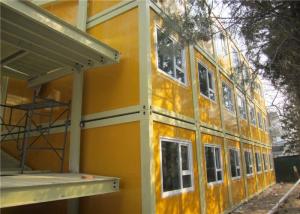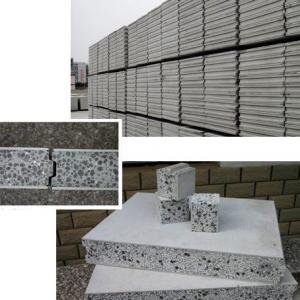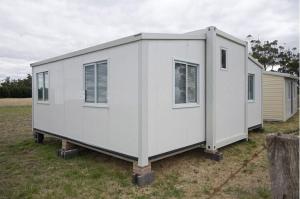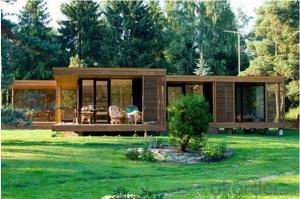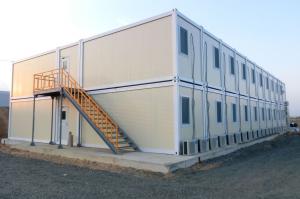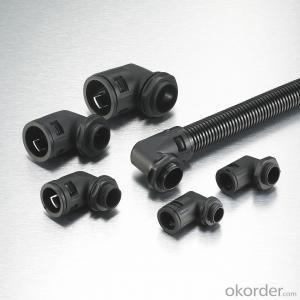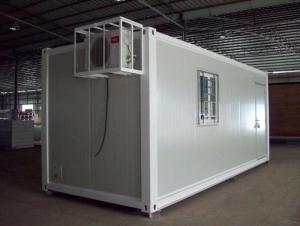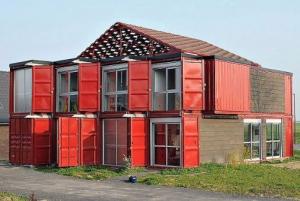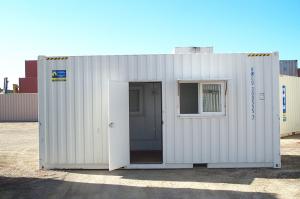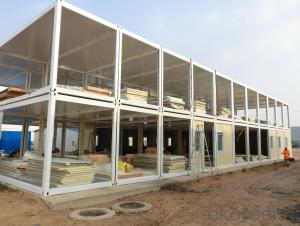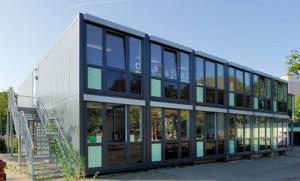ABS electrically controlled Unit connector
- Loading Port:
- China Main Port
- Payment Terms:
- TT OR LC
- Min Order Qty:
- -
- Supply Capability:
- -
OKorder Service Pledge
OKorder Financial Service
You Might Also Like
ABS electrically controlled Unit connector
1. Shorten the response speed of the electronic throttle.
2. Improve the electronic throttle's sensitivity.
3. Plug and play without external power supply.
4. 6modes/46degrees adjustable.
5. Full accelerating mode/semi accelerating mode/original /accelerator mode/economic mode available .
Noted: 1. Skoda 1.4T or 1.8T, 2.0T is different. Please leave a messege of your car model so we can match.
2. No matter what your models, we all have matching products.
Installation guide (Take imported New SantaFe as example)
- Q: Can container houses be designed with a rooftop garden?
- Yes, container houses can be designed with a rooftop garden. The structure and versatility of container houses allow for the installation of a rooftop garden, which can provide additional green space, promote sustainability, and enhance the overall aesthetic of the house.
- Q: Can container houses be designed with a home sauna or spa area?
- Yes, container houses can be designed with a home sauna or spa area. Container houses are versatile and can be customized to fit various needs and preferences, including the inclusion of a sauna or spa area. With proper planning and design, a container house can incorporate a dedicated space for relaxation and rejuvenation. The sauna or spa area can be created by utilizing a portion of the container or by extending the structure with additional containers. It is important to consider factors such as insulation, ventilation, and plumbing when designing a sauna or spa area in a container house to ensure functionality, comfort, and safety. With the right design and expert craftsmanship, container houses can be transformed into unique and luxurious homes that meet all desired requirements, including the inclusion of a home sauna or spa area.
- Q: Are container houses suitable for artist studios or creative spaces?
- Yes, container houses can be highly suitable for artist studios or creative spaces. Container houses offer several advantages that make them a great option for artists or creatives looking for a unique and inspiring environment. Firstly, container houses are highly customizable. They can be easily modified to fit the specific needs and preferences of artists. The steel structure of the containers allows for easy installation of windows, doors, and skylights, enabling natural light to flood the space. This natural light is essential for artists as it enhances their creativity and allows them to accurately perceive colors and details in their work. Furthermore, container houses are cost-effective. They are significantly cheaper than traditional housing options or purpose-built studios. This affordability allows artists to allocate more of their budget towards their creative pursuits, such as art supplies or equipment. Additionally, container houses are relatively low-maintenance, requiring minimal upkeep and reducing ongoing expenses, allowing artists to focus more on their work. Container houses also provide a sustainable option for artists. By repurposing shipping containers, these structures contribute to reducing waste and minimizing the environmental impact of construction. Artists who are conscious of sustainability will appreciate the eco-friendly aspect of container houses. Moreover, container houses offer flexibility and mobility. As artists often seek inspiration from different environments, container houses can be easily transported to different locations. This enables artists to work in various settings, whether it be in a serene countryside or a bustling urban area. The ability to move the studio also allows artists to showcase their work in different regions, expanding their reach and exposure. Lastly, container houses offer a unique and unconventional aesthetic that can inspire creativity. Artists thrive in spaces that stimulate their imagination, and the industrial yet modern look of container houses can provide the perfect backdrop for artistic expression. In conclusion, container houses are highly suitable for artist studios or creative spaces. They provide customization options, cost-effectiveness, sustainability, flexibility, and a unique aesthetic, all of which are highly beneficial for artists seeking an inspiring and practical space to pursue their creative endeavors.
- Q: Can container houses be designed to have a separate entrance?
- Yes, container houses can definitely be designed to have a separate entrance. The modular nature of container houses allows for flexibility in design, making it possible to create separate entrances based on individual needs and preferences. Architects and designers can incorporate various elements such as additional doors, separate staircases or ramps, or even create separate modules within the container house to accommodate a separate entrance. This allows for better privacy and segregation of living spaces, making it a viable option for those looking for separate entrances in their container house design.
- Q: Are container houses suitable for permanent living?
- Depending on various factors, container houses have the potential to be suitable for permanent living. These houses are constructed from shipping containers, which are specifically engineered to endure extreme weather conditions and can be adapted to create comfortable living spaces. Affordability is one of the primary advantages of container houses. Generally, they are more cost-effective than traditional houses, making them an appealing option for individuals seeking homeownership without breaking the bank. Furthermore, container houses can be highly personalized to meet the specific needs and preferences of the homeowner. Another significant benefit of container houses is their eco-friendliness. By repurposing shipping containers, we actively reduce waste and minimize the carbon footprint associated with conventional construction methods. Moreover, the use of recycled materials in the construction process contributes to sustainable living. However, it is crucial to consider certain factors when contemplating container houses for permanent living. Adequate insulation is essential to maintain a comfortable living environment. Effective insulation is necessary to regulate temperature and minimize heat loss, particularly in extreme weather conditions. Additionally, careful planning and installation of plumbing and electrical systems are imperative. Furthermore, it is important to note that container houses typically have limited space, which may not be ideal for large families or individuals with a substantial amount of belongings. Nonetheless, innovative design and layout can help maximize the available space and provide storage solutions. In conclusion, with the proper considerations and modifications, container houses can be a viable option for permanent living. They offer affordability, customization, and eco-friendliness. Through careful planning and adjustments, container houses can provide comfortable and sustainable living spaces.
- Q: Can container houses be financed like traditional homes?
- Yes, container houses can be financed like traditional homes. Many banks and financial institutions offer mortgage and home loan options for container houses, considering them as permanent structures that can be legally owned and occupied. However, it is important to note that the availability and terms of financing options may vary depending on the location, local regulations, and the specific lender's policies.
- Q: Can container houses be designed with a built-in wine cellar or storage?
- Certainly, container houses can incorporate a built-in wine cellar or storage area without a doubt. Although container houses are renowned for their compact and innovative designs, they have the flexibility to be adapted to include various amenities such as wine cellars or storage spaces. These areas can be individually tailored to meet the specific needs and preferences of the homeowner, ensuring that wine bottles are stored and displayed correctly. Moreover, container houses offer the advantage of easy customization, allowing for the integration of features like temperature control, humidity regulation, and adequate insulation to create an optimal environment for wine storage. By implementing appropriate design and modifications, container houses can effortlessly accommodate a built-in wine cellar or storage, making them an excellent choice for wine enthusiasts.
- Q: Are container houses resistant to rust and corrosion?
- Container houses are generally resistant to rust and corrosion due to the durable materials, like steel or aluminum, used in their construction. These materials have a high resistance to rust and corrosion. Moreover, shipping containers are often coated with protective paint or anti-corrosion treatments, which further enhance their resistance to rust and corrosion. This protective coating acts as a barrier, preventing direct contact between moisture, oxygen, and the metal, thus preventing rust formation. However, it is important to consider that the level of rust and corrosion resistance can vary depending on the quality of the container and how well it is maintained. If a container house is poorly maintained or exposed to harsh environmental conditions, such as constant saltwater exposure or high humidity, it can still be susceptible to rust and corrosion over time. To ensure the longevity and resistance of a container house to rust and corrosion, regular inspections and maintenance are crucial. This includes checking for any signs of rust or corrosion and promptly addressing them.
- Q: Do container houses require a building permit?
- Generally, a building permit is needed for container houses. The need for a building permit varies based on the location and local regulations. In many areas, any structure intended for habitation or permanent use, such as container houses, must adhere to building codes and acquire the required permits. These permits guarantee that the structure meets safety standards, zoning regulations, and other requirements. To construct a container house, it is crucial to consult local authorities or a professional architect to ascertain the precise requirements and acquire the necessary permits.
- Q: Are container houses suitable for areas with strict building codes?
- Yes, container houses can be suitable for areas with strict building codes. While they may require some modifications and additional permits to meet the specific requirements, container houses can still comply with building codes when built and designed properly. It is essential to work with experienced architects and contractors who are knowledgeable about local regulations to ensure compliance and obtain the necessary approvals.
Send your message to us
ABS electrically controlled Unit connector
- Loading Port:
- China Main Port
- Payment Terms:
- TT OR LC
- Min Order Qty:
- -
- Supply Capability:
- -
OKorder Service Pledge
OKorder Financial Service
Similar products
Hot products
Hot Searches
Related keywords
